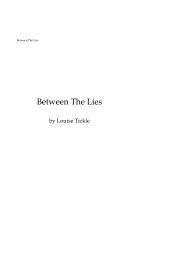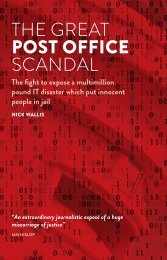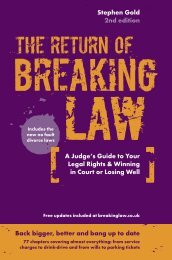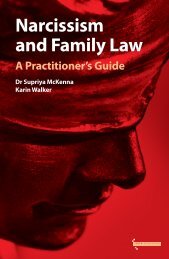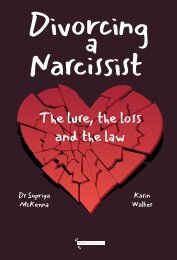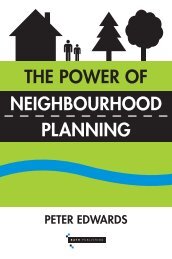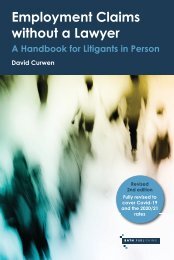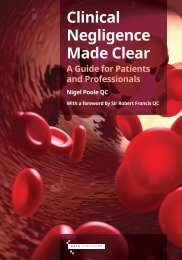Insolvency Made Clear: A Guide for Debtors
Plain English, practical guidance for anyone facing demands over a debt they are struggling to pay.
Plain English, practical guidance for anyone facing demands over a debt they are struggling to pay.
Create successful ePaper yourself
Turn your PDF publications into a flip-book with our unique Google optimized e-Paper software.
<strong>Insolvency</strong> Law <strong>Made</strong> <strong>Clear</strong> – A <strong>Guide</strong> For <strong>Debtors</strong><br />
court is likely to accede to the Trustee’s request. The mere fact that the examination<br />
is inconvenient or involves a lot of preparatory work does not make it unreasonable.<br />
It would potentially be unreasonable if the examination was to take<br />
place after a significant and unexplained delay, or if there is no real prospect of<br />
a recovery <strong>for</strong> the bankrupt’s estate. The court is likely to start with the premise<br />
that the OR or the Trustee is not going to waste their time <strong>for</strong> nothing.<br />
The OR must seek a public examination if creditors of more than half of the<br />
value of the bankrupt’s debts require them to (s290(2) of the Act). The creditors<br />
will need to give a reason why they require a public examination. If the OR<br />
thinks the request is unreasonable, they may apply to the court <strong>for</strong> an order to<br />
be relieved from making the application (see r10.101).<br />
The court will fix a date <strong>for</strong> the public examination of the bankrupt. Failure to<br />
attend is contempt of court (s290(5)).<br />
The examination itself is similar to a cross-examination of a witness in a usual<br />
civil trial. The OR and any creditors have the right to use a barrister to put<br />
questions to the bankrupt, and the bankrupt has the right to instruct a barrister<br />
<strong>for</strong> the purpose of putting any questions required to explain or qualify any<br />
answers given (r10.103), if they can af<strong>for</strong>d it. The main difference from a civil<br />
trial is that the record may be used as evidence in any further proceedings under<br />
r10.103(5). In particular, it can be relied on in criminal proceedings. However,<br />
if there are existing criminal proceedings, the court may decide to adjourn the<br />
hearing if it is of the opinion that the examination might prejudice a fair trial<br />
(r10.103(6)). In practice, a public examination typically precedes criminal proceedings<br />
and it is not common to have both in parallel.<br />
A private examination is slightly different. As the name suggests, it is held in<br />
private. Only the bankrupt can be subject to a public examination under s290,<br />
but under s366(1) the court can also summon the bankrupt’s spouse or <strong>for</strong>mer<br />
spouse, anyone known to possess any property in the bankrupt’s estate or who<br />
is indebted to the bankrupt, or anyone who may be able to give in<strong>for</strong>mation<br />
concerning the bankruptcy. The consequence is that the bankrupt cannot hide<br />
behind their ignorance of their own financial affairs: the Trustee is likely to ask<br />
them who does know the answers to their questions, and then examine them<br />
under s366.<br />
However, despite being held in private, it is an equally serious affair. The court<br />
has the power to issue an arrest warrant to support the private examination. A<br />
private examination does not need to take place in court itself, or even in the<br />
UK (s367(3)).<br />
Typically someone who receives legal advice is able to refuse to disclose it.<br />
This rule is known as ‘legal professional privilege’, and the advice is said to be<br />
36



